This week’s Ketchup brings you another ten headlines from the world of film development news (those stories about what movies Hollywood is working on for you next). Included in the mix this time around are stories about such titles as Deadpool 3, Justice League, and Now You See Me 3.
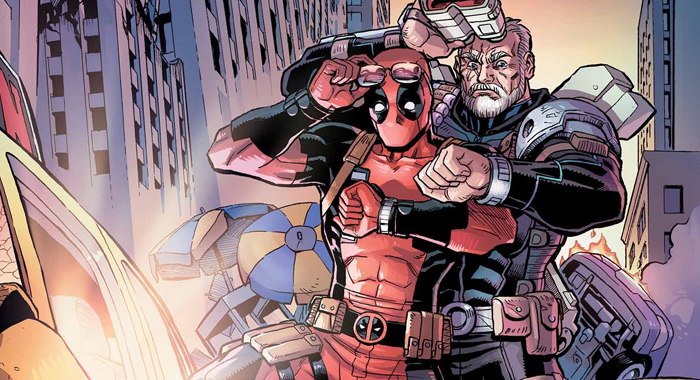
When Jennifer Lawrence was cast as Rebecca Romijn’s replacement in early 2010 in the prequel X-Men: First Class, her breakout indie hit Winter’s Bone was several months from release, and The Hunger Games was over two years away as well. Michael Fassbender had been in 300 and Inglourious Basterds, but he was far away from being a household name. So really, of the film’s three leads, James McAvoy was the biggest “name,” and even so, that was mostly because of Wanted (and to a less degree, Atonement and The Last King of Scotland). Nicholas Hoult, was still “the kid from About a Boy,” some five years before Mad Max: Fury Road. Starting with X-Men: First Class, 20th Century Fox signed these four rising stars to three film contracts, which after X-Men: Days of Future Past and X-Men: Apocalypse, have now been fulfilled. Next, consider that Fox saw a steep $204 million drop from X-Men: Days of Future Past ($748 million worldwide) to X-Men: Apocalypse ($544 million). These (and Hugh Jackman being done with Wolverine after next year’s Logan) were all factors in the news this week that 20th Century Fox is now considering some form of reboot for the X-Men franchise. What exactly that might be is still unclear, but for the time being, it appears that Fox is going to focus on the spinoff YA title The New Mutants, and what is quickly becoming a Deadpool-centric franchise of its own. Deadpool 2 is still several months away from filming, and already, Fox is working on plans for Deadpool 3. The studio is reportedly planning on combining their long-in-development X-Force movie with Deadpool 3, although which characters it might include are still unknown. Colossus, who appeared in Deadpool, has been an X-Force member, and X-Force members Cable and Domino are both confirmed to make their debuts in Deadpool 2. Beyond that, a few of the New Mutants (such as Cannonball, Mirage, Sunspot, and Wolfsbane) went on to be members in the comics of X-Force (which actually started as a direct spin-off of The New Mutants). There is no release date for The New Mutants or Deadpool 3, but the former might make it in 2018, and the latter probably won’t be released until 2020 at the earliest. It’s not yet known if X-Men: Apocalypse additions like Alexandra Shipp, Kodi Smit-McPhee, Tye Sheridan, and Sophie Turner will remain if Fox does reboot the X-Men franchise.
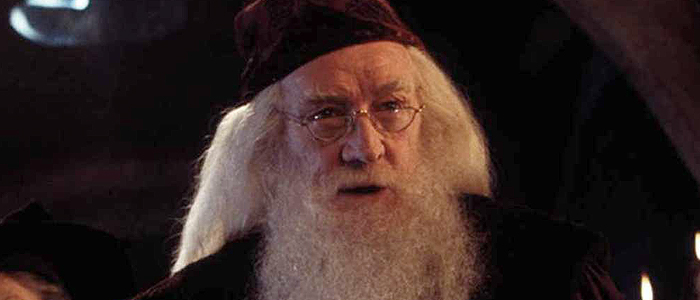
There are sometimes different ways to interpret movies, such as what they present versus what one of the creators might state outside of what the film depicts. For example, you can watch all eight of the Harry Potter movies, and the sexuality of Professor Albus Dumbledore is never explicitly addressed. However, anyone who was following the Harry Potter franchise while those movies were being made probably heard in 2007 that J.K. Rowling stated, “Dumbledore is gay.” Specifically, Rowling said that Dumbledore fell in love with his rival wizard, Gellert Grindlewald, although she never said that Grindlewald necessarily returned Dumbledore’s romantic affections. We mention all of this because this week, J.K. Rowling seemed to hint that the younger Dumbledore might be more openly gay than we’ve seen in the Harry Potter movies. That statement came a few days after it was reported that casting is currently underway for the young Albus Dumbledore to appear in the second Fantastic Beasts and Where to Find Them, to be released on November 16, 2018. The final element about all of this was also filled in this week, with the confirmation from director David Yates that the character the recently cast Johnny Depp will play in the sequel is none other than the previously mentioned wizard Gellert Grindlewald.

In the past, we’ve heard about the long contracts that some of the Marvel Studios stars have had to sign. For example, we know that at least two of their stars signed for nine movies each: Samuel L. Jackson (Nick Fury), and Sebastian Stan (Winter Soldier). Other Marvel Studios stars have shorter contracts, such as six movies each for Chris Evans (Captain America), Chris Hemworth (Thor), Tom Hiddleston (Loki) and Mark Ruffalo (The Hulk); five movies for Chadwick Boseman (Black Panther), and Robert Downey Jr (Iron Man), who only signs for each additional movie separately. (You can also read another slightly more up-to-date review of their contracts here). This week, we learned of another lengthy multi-film Marvel Studios contract, and the details of it provided us with some interesting new hints: Tom Holland, who made his debut as Spider-Man in Captain America: Civil War, signed on for six Marvel Studios films. That package includes three solo movies, starting with Spider-Man: Homecoming (7/7/17), which leads to some fairly limiting math, because that means Tom Holland is only signed to play Spider-Man in two more MCU movies that aren’t his own. Presumably, those two films might be Avengers: Infinity War (5/4/18), and the untitled fourth Avengers movie (5/3/19). So, if anyone was hoping maybe Spider-Man would be appearing in other MCU movies like Ant-Man and the Wasp, or Captain Marvel, the math suggests that he won’t be (unless Marvel Studios signs a new contract down the road, which isn’t impossible).

The continued box office domination of the superhero movies of Marvel Studios and Warner Bros arguably has led people to think of them as being synonymous with “comic book movies.” Technically, though, comic book movies are less a genre than just a type of source material (such as remakes, and movies based on TV shows, books, etc). Indeed, if one goes back several years, you can actually find years where most “comic book movies” were not, strictly speaking, “superhero movies.” For example, in the year 2001, none of the major comic book adaptations (Ghost World, From Hell, Ichi the Killer, Josie and the Pussycats) were “superhero movies.” One such non-superhero comic book title is Event Comics’ Painkiller Jane, who is more of a Punisher-style vigilante (who happens to have the ability to heal really quick, but no traditional “super powers”). Painkiller Jane has been adapted in the past, first as a 2005 TV movie, and then in 2007 as a TV series (in both cases, these productions were for SyFy). A full-fledged Painkiller Jane movie might still happen, however, with the news this week that Jessica Chastain is now attached to produce and star in a theatrical adaptation of Painkiller Jane. Although she has indeed costarred in such genre titles as Crimson Peak, Huntsman: Winter War, Interstellar, and The Martian, it somehow still seems unusual for Chastain to sign on for a revenge thriller like Painkiller Jane. It’s not yet known who will direct Painkiller Jane.

Among the rock stars who continue to elude “biopic” treatment (such as Janis Joplin and Elton John), one whose biopic has been in development the longest is Queen frontman Freddie Mercury. If you’ve heard, in the past, about a Freddie Mercury biopic, it might have been back when Sacha Baron Cohen was attached to star (before he eventually departed the project). That biopic, now called Bohemian Rhapsody, appears to be getting closer to production, with the news this week of the film’s star. Rami Malek, who is probably best known for starring in the TV series Mr. Robot (he also costarred in HBO’s The Pacific), is now attached to star in that film as Freddie Mercury. We can also report that frequent X-Men director Bryan Singer is in talks to direct Bohemian Rhapsody, with filming expected to start in early 2017 (making this Singer’s first film after this year’s X-Men: Apocalypse). Bohemian Rhapsody was adapted by screenwriter Anthony McCarten, whose other projects include The Theory of Everything, and next year’s Darkest Hour, featuring Gary Oldman as Winston Churchill.

A lot of the holiday traditions that we take for granted in 2016 didn’t even really exist in, say, 1816 or even (for some holidays), in 1916. This week, we learned of an upcoming British film which will address how one man in 1843 arguably changed or popularized the customs of Christmas, defining much of what we now associate with the holiday. Dan Stevens, Christopher Plummer, and Jonathan Pryce are all now signed to star in The Man Who Invented Christmas, about author Charles Dickens’ (Stevens) authoring of the popular novel A Christmas Carol. Dan Stevens is probably best known for starring as Matthew Crawley in the first three seasons of Downton Abbey (he’s also going to be “the beast” in next year’s live action Disney remake of Beauty and the Beast). Christopher Plummer will play Ebenezer Scrooge (it’s unclear if he will be a “real” character or one imagined by Dickens), and Jonathan Pryce will play Dickens’ father. Filming of The Man Who Invented Christmas is scheduled to begin next month, in time for a holiday season release in late 2017.
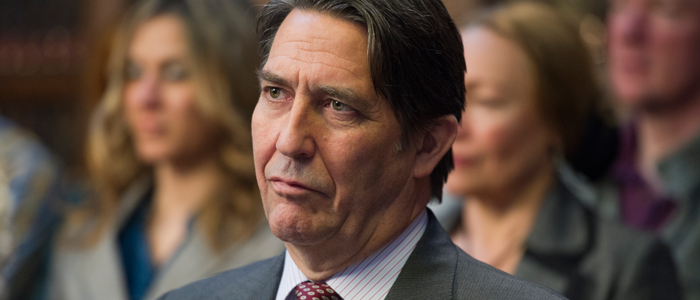
If you are a superfan of this year’s Batman v Superman: Dawn of Justice, you may have seen the deleted scene many fans and commentators have interpreted as teasing the introduction of Steppenwolf, one of the New Gods villains most associated with DC Comics “big bad” Darkseid. Well, this week, that hint was confirmed with the news that Steppenwolf will indeed be the main villain in next year’s Justice League. That confirmation came via the news that Ciaran Hinds (aka Mance Rayder from Game of Thrones) will be the actor playing Steppenwolf. The timing of this revelation was unusual because it actually came out after filming of Justice League recently wrapped (it’s usually the case that we learn these things weeks or even months before filming starts). We’re calling this a “Rotten Idea” because Justice League will be another DC Comics movie directed by Zack Snyder, and his Tomatometer has been nothing but Rotten splotches the last seven years (2010 to 2016). Warner Bros has scheduled Justice League for release on November 17, 2017, two weeks after Marvel’s Thor: Ragnarok (November 3, 2017).
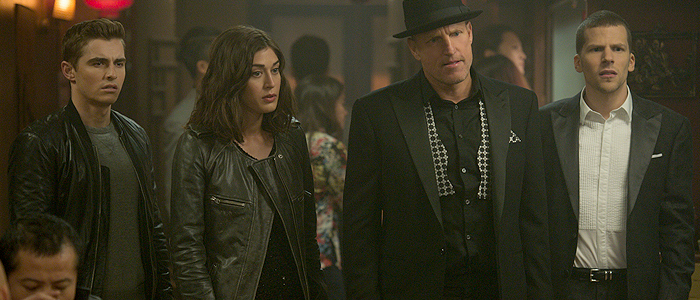
There is no denying that Lionsgate had a legitimate box office hit with 2013’s magician-caper Now You See Me, earning over $350 million worldwide from a budget of just $75 million. The sequel, however, earned just $65 million domestically, though it did come just $17 million shy in worldwide grosses. So, as a “franchise,” Now You See Me is sort of like Warcraft, with the domestic grosses of the 2016 film being much less, proportionately, than the international numbers. We’ve known for a while now that Lionsgate was planning a third film set in China with a mostly Chinese cast, which is now confirmed to be more of a spinoff than a direct sequel. That leads us to this week’s news, which is that Lionsgate is now developing a proper Now You See Me 3, which will effectively be the fourth film of the franchise. We’re calling this news a “Rotten Idea” because both of the previous films earned Rotten Tomatometer scores, with the scores dropping from 49 percent for the first movie to just 34 percent for the second film.
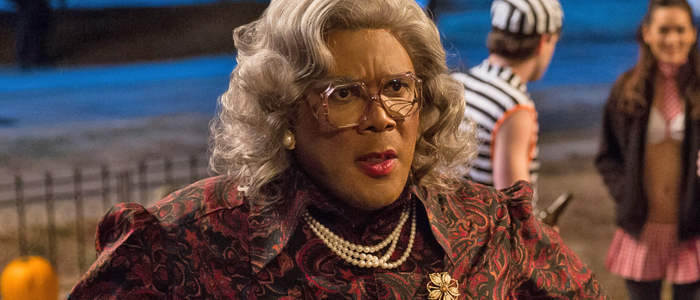
Speaking of popular Lionsgate movies with Rotten Tomatometer scores, let’s move on to Tyler Perry. As a director, producer and star (as Medea), Perry has an astonishing track record of solid box office performance despite frequently negative critical receptions. Perry, therefore, is somewhat emblematic of that age-old tug-of-war between critical success and the sort of obvious populist product that Perry’s target audiences keep returning for again and again. We do, however, judge “Rotten Ideas” largely on previous Tomatometer scores, and so that’s where this latest project is going to land. Tyler Perry has signed on to produce an English remake of the Korean hit comedy Miss Granny. The premise of this comedy (and its remake) centers on a 70-year-old woman (probably played by Tyler Perry) who swaps bodies with a young woman in her 20s. Then, presumably, hilarity and high jinks ensue. It’s not yet known if Tyler Perry will directly remake Miss Granny as the next Madea movie, or if it will be its own separate property.
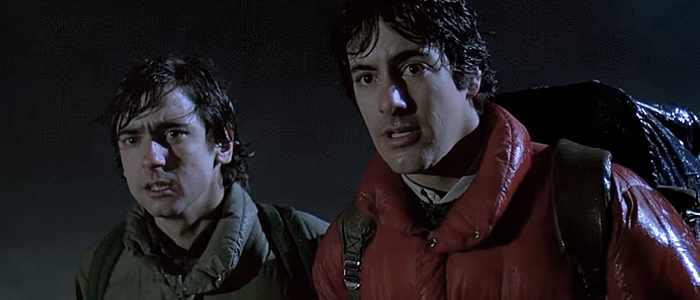
There is a continuing disagreement about which movies should be remade, and what it means when one chooses to remake a film. On one side, the argument is that widely acknowledged classic films should never be remade (ie, “you can’t do better than that!”). On the other hand, some filmmakers think that remakes are a way of honoring the original. One such example of that was John Carpenter’s The Thing, which is now held in higher regard by many than the original film, 1951’s The Thing From Another World. The rebuttal to that argument, is that most such remakes are not better (such as say, the 2011 remake of Carpenter’s The Thing). One of the horror comedies of the 1980s that many fans hold in high esteem is John Landis’ 1981 deconstruction on lycanthropy tropes (“lycantropes!”), An American Werewolf in London, which has earned Certified Fresh status on Rotten Tomatoes. Although he also directed such favorites as Trading Places, The Blues Brothers, and National Lampoon’s Animal House, the argument could be made that it was with An American Werewolf in London that John Landis had his longest lasting impact, establishing a new form of “horror comedy” that has been frequently revisited. We wanted to heap all that praise before revealing this week’s “rotten idea,” which is that John Landis’ son Max has decided to write a remake of An American Werewolf in London for Universal Pictures. This remake will be produced by some of the people behind The Walking Dead, but no other details are known yet. Max Landis did score a Certified Fresh rating with Chronicle, but all of his other Tomatometer credits are Rotten (such as American Ultra, Victor Frankenstein, Mr. Right, and Me Him Her).